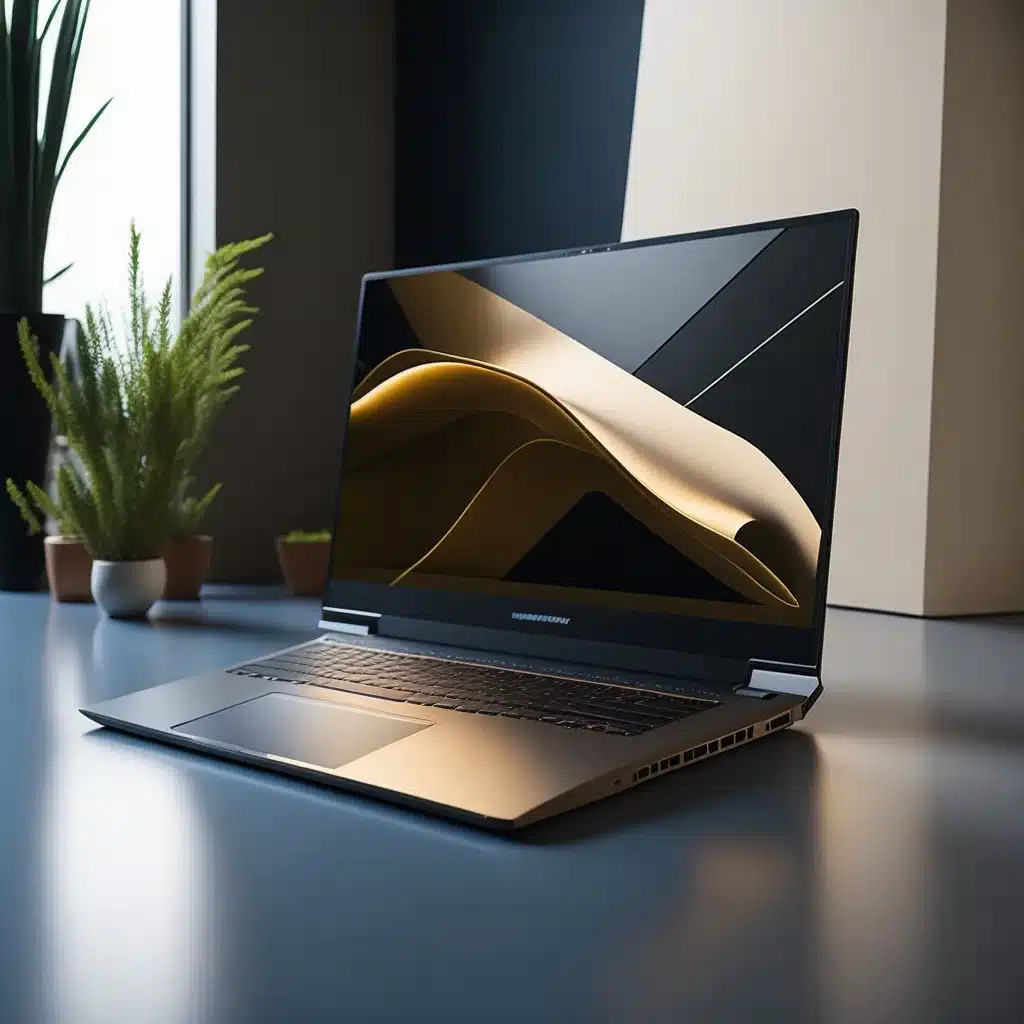Introduction
When shopping for a laptop, it’s important to consider which features are most important to you. This includes the processor speed, RAM, storage capacity, battery life, display size and resolution, and software compatibility. Additionally, it’s important to consider your budget, as laptops can vary greatly in price.
In this post we will give you a guide that will help you narrow down your options so that you can find the perfect laptop for your needs. We will also provide information on the latest laptop models and the best deals available. Finally, we will help you make a decision with confidence.
What are your needs
Before you choose a laptop you should identify your needs based on your profile. For example, if you need a laptop for gaming or software development, you should go for one that has a powerful processor and large RAM. On the other hand, if you need a laptop for basic tasks like Microsoft Office (Word, Excel, Power Point …), you should go for one that has a lower processor and smaller RAM.
| Needs | CPU | RAM | DISK | GPU |
| Software developer | Intel Core i5 orAMD Ryzen 5 | 8GB to 16GB(16GB recommended) | 256GB to 512GBSSD | Integrated GPU |
| Machine learning engineer | Intel Core i9 OrAMD Ryzen 9 | 16GB to 32GB | 1TB SSD | NVIDIA with CUDA support.(NVIDIA RTX 3070 Recommended) |
| Cyber security engineer | Intel Core i5 orAMD Ryzen 5 | 16 GB | 512GB to 1TBSSD | Dedicated GPU with CUDA support |
| Designer | Intel Core i5 orAMD Ryzen 5/7 | 16GB to 32GB | 512GB to 1TBSSD | mid-range to high-end dedicated GPU from NVIDIA |
| Microsoft office user | Intel Core i3/i5 orAMD Ryzen 3/5 | 4GB to 16GB | 256GB | Integrated GPU |
What Laptop Brand is best for you
There are different laptop brands to select, and that depends on your specific needs, budget, and preferences.
Here are some of the most reputable laptop brands and why they are well-regarded:
Apple (MacBook): Apple is known for its sleek design, high-quality build, and user-friendly macOS operating system. MacBooks are favored by creative professionals, developers, and users who prioritize aesthetics and a seamless ecosystem between Apple devices. They often come with Retina displays and long battery life. However, Apple laptops tend to be relatively expensive compared to Windows counterparts.
Dell: Dell offers a wide range of laptops, including the premium XPS series known for their exceptional build quality, near-borderless displays, and powerful performance. Dell laptops cater to various budgets and use cases, from gaming laptops (Alienware) to business-oriented models (Latitude and Precision).
HP (Hewlett-Packard): HP produces laptops for different segments, including the premium Spectre and Envy series, which are known for their elegant designs and solid performance. HP also offers budget-friendly options like the Pavilion series, making it accessible to a wide range of users.
Lenovo: Lenovo is renowned for its reliable ThinkPad laptops, particularly popular among business professionals for their durability, excellent keyboards, and robust security features. Lenovo also offers the Yoga series for 2-in-1 convertibles and the Legion series for gaming laptops.
Asus: Asus is a versatile brand offering a wide range of laptops. They are well-regarded in the gaming community for their ROG (Republic of Gamers) series. Asus laptops often come with high refresh rate displays and powerful graphics cards, making them suitable for gamers and content creators.
Acer: Acer provides a variety of laptops, including budget-friendly options like the Aspire series and more premium models such as the Swift and Predator series. The Predator laptops are popular among gamers for their performance and value.
Budget consideration
Budget considerations are crucial when buying a laptop, as they help you find the right balance between your financial constraints and your computing needs. Here are some key factors to keep in mind when considering your budget for a laptop purchase:
Define Your Budget: Start by determining how much you’re willing to spend on a laptop. Setting a clear budget from the beginning will help narrow down your options and prevent overspending.
Prioritize Your Needs: Understand your primary use case for the laptop. Are you buying it for basic tasks like web browsing, email, and word processing, or do you have more demanding requirements like gaming, content creation, or software development? Prioritize the features and specifications that matter most for your use case.
Consider Long-Term Value: While it can be tempting to go for the cheapest laptop available, consider the long-term value of your purchase. A slightly higher upfront investment might save you money in the long run by ensuring the laptop remains capable of handling your needs for several years.
Operating System: Different operating systems come with varying costs. Windows laptops are available across a wide price range, while MacBooks tend to be more expensive due to their premium build and macOS. Chromebooks, which use Chrome OS, are often budget-friendly options for basic tasks.
Hardware Specifications: Focus on the hardware specifications that matter most for your tasks. For basic productivity, an entry-level CPU, 4GB of RAM, and a 128GB SSD should suffice. However, more demanding tasks, such as gaming or video editing, may require higher-end components.
Consider Refurbished or Older Models: If you’re on a tight budget, consider buying a refurbished laptop or a slightly older model. Refurbished laptops are often professionally inspected and come with warranties, making them a cost-effective option.
Build Quality and Durability: While it’s tempting to go for the cheapest laptop, investing in a laptop with good build quality and durability can save you money in the long run. Well-built laptops are less likely to require repairs or replacements.
Warranty and Support: Check the manufacturer’s warranty and support options. Some laptops come with longer warranties or include accidental damage protection. These can provide peace of mind and save you money on potential repairs.
Accessories and Software: Remember to budget for essential accessories like a laptop bag, a mouse, and software you may need (e.g., Microsoft Office). These costs can add up.
Compare Prices: Don’t hesitate to shop around and compare prices from different retailers. Online retailers, local stores, and manufacturer websites may offer different deals and discounts.
Consider Future Upgrades: If possible, choose a laptop that allows for future upgrades like RAM or storage. This can extend the laptop’s lifespan without the need for a complete replacement.
Read Reviews and User Feedback: Before making a final decision, read reviews and user feedback on the laptops you’re considering. Real-world experiences from other users can provide valuable insights into a laptop’s performance and reliability.
By carefully considering your budget and taking into account your specific needs, you can find a laptop that offers the best value for your money without compromising on performance and quality. It’s important to strike a balance between your budget and the features that are most important to you to make a satisfying and cost-effective purchase.
Conclusion
In summary, the best laptop for you is the one that aligns with your specific needs, budget, and preferences. Consider factors like operating system, hardware specifications, build quality, and long-term value to make an informed choice. Your ideal laptop should empower you to work efficiently and seamlessly integrate into your lifestyle.

